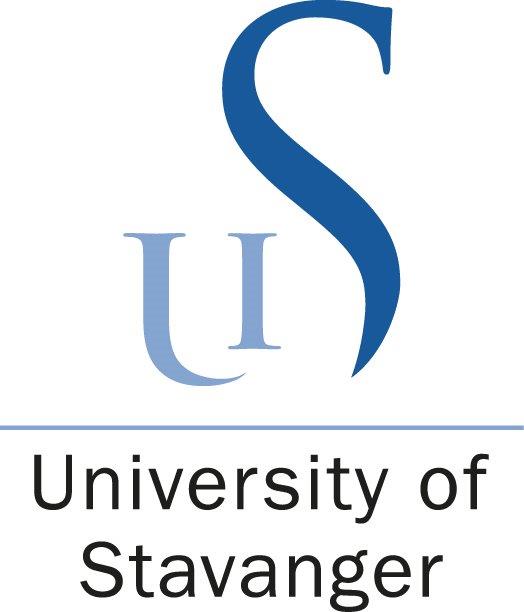PhD Research Fellows and Postdoctoral Fellows within quality and safety in healthcare
The University of Stavanger invites applications for up to three fellowships as PhD or postdoctor within quality and safety in healthcare at the Faculty of Health Sciences, Department of Quality and Health Technology. The positions are connected to the research centre SHARE – Centre for Resilience in healthcare.
SHARE was established in 2017 and has status as one of nine research centres at UiS. SHARE is built on long-lasting research within quality and patient safety in healthcare and is a strategically prioritized area at the Faculty of Health Sciences. SHARE’s consortium partners are the Norwegian University of Science and Technology, campus Gjøvik and the Norwegian Air Ambulance Foundation. SHARE has a multi-disciplinary profile with more than 40 researchers affiliated.
The PhD fellowship positions are educational positions that will give promising researchers an opportunity for academic development leading to a doctoral degree. The appointments are fore three years in a 100% research position, or four years with 75% research training and 25% compulsory work, or in a part-time course with at least 50% research training per year.
The post doctoral fellowship positions are career positions to give researchers/scholars holding a doctoral degree within relevant academic field(s) the opportunity for further qualification towards full professorship. The appointments are for two years in 100% positions, or up to four years in a 50% position.
Candidates are asked to clarify their preferred appointment type in the application. The positions are vacant from September 2019.
The positions are within the field of quality and safety in healthcare, with a specific focus on resilience (individual resilience, organizational resilience, system/societal resilience). The SHARE research centre’s overall aim is to generate internationally acknowledged research within resilience in which handling of variation (anticipate, monitor, respond, learn) in all areas of healthcare from patient to clinical practice to regulation and supervision constitutes the main research area. The current available positions will be directed towards the following prioritized areas within SHARE:
- Developing a resilience learning intervention
The project will design, implement and evaluate a context-specific and practice-aligned learning intervention for resilience (e.g. education module, training programme, simulation, interprofessional meeting platform, webinar, e-dialogue fora). The learning intervention could be framed within the “Learning from success” framework of Dieckmann et al (Advances in Simulation, 2017, 2:21). The goal is to translate resilience research into practice by engaging diverse stakeholders in collaborative activities related to the development, implementation, and evaluation of the learning intervention. - Resilience in an international context
The project will carry out a comparative study of resilience across different international contexts. A comparison across low and high income countries could be included in the project, focusing on how resilience is addressed at the system level and the influence of contextual factors. The project will be integrated with ongoing work in the SHARE centre concerning the design of an international comparative study across five countries. - Resilient leadership
The project will study the influence of leadership on resilience in healthcare, and how managers can support resilience. The project will map mechanisms, capacities and arenas that are central in organisations or units that have succeeded in creating openness, proactive approaches, and environments promoting quality and safety. The project could be framed within a “Positive deviance” approach to leadership and resilience (e.g. Brandley et al, Implementation Science, 2009, 4:25).
Qualification requirements
For employment as a PhD Research Fellow we require a strong academic background who have completed a five-year master degree (3+2) within healthcare and/or social science holding a recent master’s degree relevant for quality and safety in healthcare, preferably acquired recently; or possess corresponding qualifications that could provide a basis for successfully completing a doctorate. The grade of the master’s thesis and the weighted average grade of the master’s degree programme must individually be equivalent to or better than a grade B. Candidates that have not yet delivered their master thesis will not be considered for the positions.
For employment as a Postdoctoral Fellow we require a PhD in healthcare and/or social science relevant for quality and safety in healthcare. Candidates that have not yet delivered their PhD dissertation will not be considered for the positions.
Applicants with an education from an institution with a different grade scale than A-F should attach a confirmed conversion scale that shows how the grades can be compared with the Norwegian A-F scale.
Emphasis is also placed on your:
- motivation and potential for research within the field
- ability to work independently and in a team, be innovative and creative
- ability to work structured and handle a heavy workload
- having a good command of both oral and written English and Norwegian/Scandinavian language.
For more information click "LINK TO ORIGINAL" below.
This opportunity has expired. It was originally published here:
https://www.jobbnorge.no/en/available-jobs/job/171140/phd-research-fellows-and-postdoctoral-fellows-within-quality-and-safety-in-healthcare
